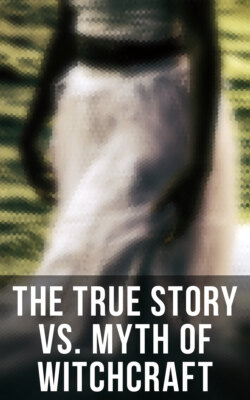Читать книгу The True Story vs. Myth of Witchcraft - William Godwin - Страница 152
На сайте Литреса книга снята с продажи.
Virgil.
ОглавлениеOne of the most curious particulars, and which cannot be omitted in a history of sorcery, is the various achievements in the art of magic which have been related of the poet Virgil. I bring them in here, because they cannot be traced further back than the eleventh or twelfth century. The burial-place of this illustrious man was at Pausilippo, near Naples; the Neapolitans had for many centuries cherished a peculiar reverence for his memory; and it has been supposed that the old ballads, and songs of the minstrels of the north of Italy, first originated this idea respecting him. 166 The vulgar of this city, full of imagination and poetry, conceived the idea of treating him as the guardian genius of the place; and, in bodying forth this conception, they represented him in his life-time as gifted with supernatural powers, which he employed in various ways for the advantage of a city that he so dearly loved. Be this as it will, it appears that Gervais of Tilbury, chancellor to Otho the Fourth, emperor of Germany, Helinandus, a Cisterian monk, and Alexander Neckam, all of whom lived about this time, first recorded these particulars in their works.
They tell us, that Virgil placed a fly of brass over one of the gates of the city, which, as long as it continued there, that is, for a space of eight years, had the virtue of keeping Naples clear from moskitoes and all noxious insects: that he built a set of shambles, the meat in which was at all times free from putrefaction: that he placed two images over the gates of the city, one of which was named Joyful, and the other Sad, one of resplendent beauty, and the other hideous and deformed, and that whoever entered the town under the former image would succeed in all his undertakings, and under the latter would as certainly miscarry: that he caused a brazen statue to be erected on a mountain near Naples, with a trumpet in his mouth, which when the north wind blew, sounded so shrill as to drive to the sea the fire and smoke which issued from the neighbouring forges of Vulcan: that he built different baths at Naples, specifically prepared for the cure of every disease, which were afterwards demolished by the malice of the physicians: and that he lighted a perpetual fire for the refreshment of all travellers, close to which he placed an archer of brass, with his bow bent, and this inscription, “Whoever strikes me, I will let fly my arrow:” that a fool-hardy fellow notwithstanding struck the statue, when the arrow was immediately shot into the fire, and the fire was extinguished. It is added, that, Naples being infested with a vast multitude of contagious leeches, Virgil made a leech of gold, which he threw into a pit, and so delivered the city from the infection: that he surrounded his garden with a wall of air, within which the rain never fell: that he built a bridge of brass that would transport him wherever he pleased: that he made a set of statues, which were named the salvation of Rome, which had the property that, if any one of the subject nations prepared to revolt, the statue, which bore the name of, and was adored by that nation, rung a bell, and pointed with its finger in the direction of the danger: that he made a head, which had the virtue of predicting things future: and lastly, amidst a world of other wonders, that he cut a subterranean passage through mount Pausilippo, that travellers might pass with perfect safety, the mountain having before been so infested with serpents and dragons, that no one could venture to cross it.
